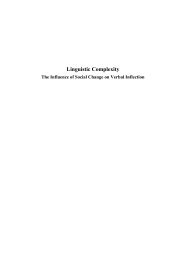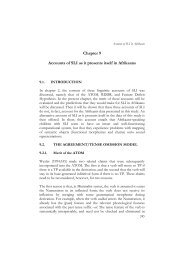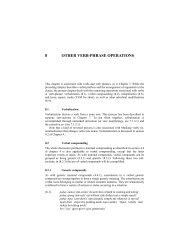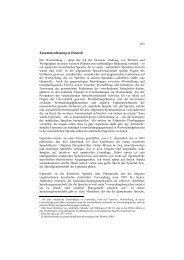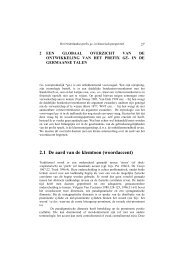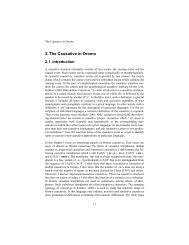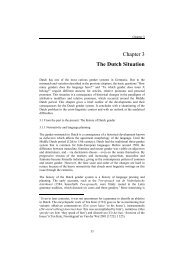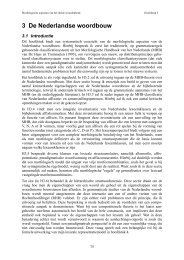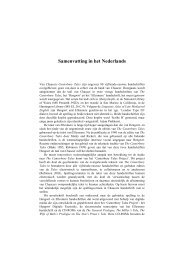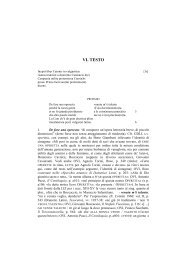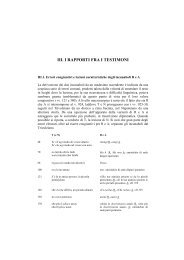chapter 2 stance adverbs qualifying a standpoint - LOT publications
chapter 2 stance adverbs qualifying a standpoint - LOT publications
chapter 2 stance adverbs qualifying a standpoint - LOT publications
You also want an ePaper? Increase the reach of your titles
YUMPU automatically turns print PDFs into web optimized ePapers that Google loves.
62<br />
CHAPTER 2<br />
by the speaker but also an evaluation of the actor too. While such <strong>adverbs</strong> may<br />
occupy initial position in a sentence and may be relatively flexible in occupying<br />
other positions, they cannot be considered as <strong>qualifying</strong> the whole utterance.<br />
Consider the following examples (taken from Huddleston & Pullum, 2002, pp.<br />
675-6):<br />
(1) He answered the question foolishly<br />
(2) He foolishly answered the question<br />
(3) Foolishly, he answered the question<br />
The same form of the adverb foolishly complements the verb in (1), while it<br />
qualifies the verb in both (2) and (3). Note that only (1) can be given as an<br />
answer to the question „How did he answer the question?‟. In none of the<br />
above cases, however, can the adverb be considered as <strong>qualifying</strong> the whole<br />
utterance, not even in (3) where the adverb appears in front position. Consider<br />
the following text taken from the COBUILD corpus:<br />
(4) Many East German factories were chronically overmanned under the<br />
old system and, according to Joachim Nawrocki, the loss of many<br />
jobs is inevitable: Many people are worried about their jobs. Quite<br />
rightly, because the East German economy is a complete shambles<br />
and has the wrong structure.<br />
In the above text, the adverb rightly expresses the author‟s comment about the<br />
event described in the proposition „Many people are worried about their jobs‟.<br />
At the same time, the use of the adverb rightly expresses the author‟s evaluation<br />
of the people who are worried. The author can be considered committed to a<br />
<strong>standpoint</strong> paraphrased as: „My point of view is that the people in East<br />
Germany are right being worried about their jobs‟ or to a <strong>standpoint</strong><br />
paraphrased as: „My point of view is that it is right that people are worried<br />
about their jobs in East Germany‟. In either case, the adverb rightly cannot be<br />
said to qualify the <strong>standpoint</strong> that the author has advanced, since it is precisely<br />
that which receives support by the subordinate clause that follows: „Because the<br />
East German economy is a complete shambles and has the wrong structure‟.<br />
The other sub-group that Huddleston and Pullum distinguish within the<br />
group of „act-related adjuncts‟ includes <strong>adverbs</strong> such as accidentally, deliberately,<br />
and willingly, which “do not reflect a subjective evaluation of the act but relate<br />
to the intentions or willingness of the agent” (2002, p. 676). These <strong>adverbs</strong><br />
cannot be paraphrased in the way <strong>adverbs</strong> like foolishly can: „*It was deliberate of<br />
him to answer two questions‟. Moreover, they are less flexible in the positions<br />
they can occupy in the sentence. Nevertheless, none of the sub-groups of „actrelated<br />
adjuncts‟ can be said to qualify the <strong>standpoint</strong> that can be reconstructed<br />
from the utterance in which they appear. This is because the comment that they



